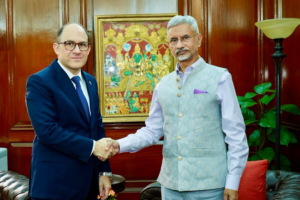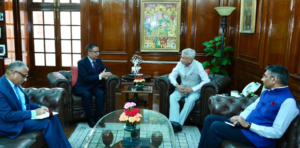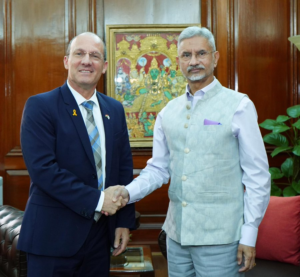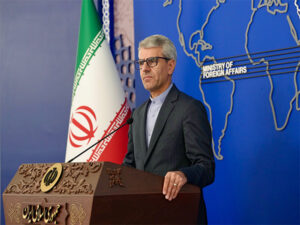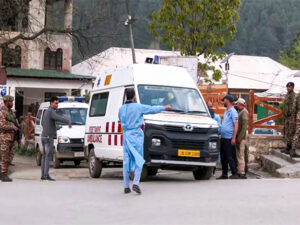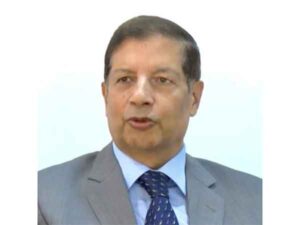UAE chairs 27th session of Council of Arab Ministers of Communications and Information
Abu Dhabi [UAE], January 19 (ANI/WAM): The UAE, represented by Talal Humaid Belhoul, Chairman of the Board of Directors of the UAE Telecommunications and Digital Government Regulatory Authority (TDRA), chaired and hosted the 27th Session of the Council of Arab Ministers of Communications and Information in Abu Dhabi on 18th January 2024.
The event was attended by Arab delegations, the Technical Secretariat of the Council of Arab Ministers of Communications and Information, and representatives from various entities and organisations with observer status. These included the ITU Arab Regional Office and several Arab organisations operating in the ICT field.
The agenda of this session focused on key topics raised during the 53rd Meeting of the Executive Bureau of the Arab Telecommunications and Information Council of Ministers (ATICM), hosted and chaired by the UAE on 17th January 2024.
The discussions addressed collective Arab initiatives in the ICT sector, highlighting the importance of collaborative efforts to fortify digital infrastructure, bridge the digital divide in the Arab world, and realise a digitally integrated Arab society. Emphasis was placed on harnessing modern digital technologies, enhancing service quality, considering principles of sustainable development, and promoting digital investments in the ICT sector.
In his opening speech, Belhoul welcomed the delegations participating in the meeting of 27th Session of the Council of Arab Ministers of Communications and Information, emphasising the importance of coordinated and collective Arab action.
He said, “Today, the ICT sector serves as the common thread weaving through the radical and profound changes in administration, economy, education, agriculture, industry, government work, the structure of cities and human settlements. Therefore, this crucial sector acts as the gateway leading us towards the future we envision for our societies and future generations. Given this perspective, there are compelling reasons to reinforce Arab solidarity and cooperation against technical challenges and uncertainties that define today’s world. In a landscape where change is the only constant, and extreme speed characterises transformations in concepts, technologies, and methods, collaboration becomes imperative.”
Reflecting on the successful experience of Arab collaboration, which was evident during the World Radiocommunication Conference WRC-23, held in Dubai, UAE, from 20th November to 15th December 2023, Belhoul said, “Our meeting today occurs shortly after the conclusion of WRC, where the Arab delegations exhibited a civilised and honourable model, embodying the spirit of teamwork. This team engaged in consultation, coordination, study, and analysis, ultimately making informed decisions based on realistic data and multiple considerations. The success of the Arab Spectrum Management Group and the Arab countries supporting it during the WRC offers a glimpse of the outcomes that the Arab world can attain when coordination is enhanced across all international forums and platforms.”
The 27th Session of the Council of Arab Ministers of Communications and Information also encompassed the adoption of the topics deliberated in the meeting of the Arab ICT Permanent Committee. These matters were presented to the Executive Bureau and subsequently submitted for endorsement at the Council of Arab Ministers meeting.
The topics comprised a call for Arab countries to align their experiences in the field of digital transformation with the Arab Digital Strategy, adopted by the UAE to measure the digital transformation maturity level across all sectors. The Arab Digital Strategy serves as a guiding framework to assist countries in advancing their digital transformation processes, enhancing technological capabilities, and improving the services they deliver.
The meeting agenda also included the outcomes of WRC-23, hosted by the UAE in the last quarter of 2023. It included the results of the meetings of the work groups of The Arab ICT Permanent Committee and the proposals submitted by countries during the meeting to enhance the Council’s work mechanism, including the UAE’s proposal on criteria for Arab candidates for leadership positions in international organisations, particularly the ITU. The aim is to adopt a unified Arab approach in this regard, and this proposal garnered unanimous support from all participating countries.
The Council of Arab Ministers of Communications and Information is the supreme executive body for the development of the Arab ICT community, and one of the specialised ministerial councils that operates under the umbrella of the Council of the League of Arab States, while the Arab ICT Permanent Committee emerges from this Council, and holds its meetings twice a year prior to the meetings of the Council of Arab Ministers and the Executive Bureau.

